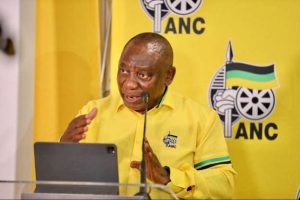
Staff Writer
With around 68 hung councils arising from South Africa’s 1st November local government poll, issues around coalitions will likely influence the country’s short- and medium-term political trajectory. In this regard parties have begun staking out positions, with the DA stating that it would not go into coalition with the EFF, ActionSA stating that it would not partner with the ANC, and the EFF stating that it would not partner with the DA. Nevertheless, coalition talks had already commenced prior to the vote, and will be necessary should governance and service delivery improvements actually occur in the next few years.
Speaking to Radio Islam International, political analysts, Professor Steven Friedman and Mike Louw, sought to assess the current state of the country’s politics post-election. Prof Friedman argued that, for the most part, the ANC will likely have to be involved in most of the councils, mainly since the numbers don’t allow for the party to be excluded. In addition, he pointed out that the ANC’s 46% was more than double that of the DA, and 4 times that of the EFF, meaning that the party is still by far the largest and most popular party. Barring the City of Cape Town, Tshwane and possibly Joburg, “the reality everywhere else, is simple as that the ANC hast to be part of the coalition [otherwise] there won’t be a coalition at all because the numbers simply don’t allow.” Prof Friedman pointed out that this will be unstable, and that in some instances we may need new bi-elections where governments had not been elected, failing which administrators may be needed to be appointed to oversee the running of these councils. Significantly, in this regard, Prof Friedman did allude to the fact that some parties may pullback from their stance’s opposition coalitions with the ANC, since voters at times punish parties which seemed to be blocking governance. In addition, he argued that most coalition assessment has been based on theory and not reality, and that although the country and political parties have learnt from 2016, issues around divisions of positions and seats will still be the main factor influencing coalition talks. Citing the example of the Patriotic Alliance’s flipflopping following the 2016 pole in the Nelson Mandela metro, wherein it only received 1 seat, he argued that smaller parties will seek to extract as much as possible and also that this would inevitably be unstable. “Well, these things [coalitions] work very well in theory, but a lot of these political discussions are very unreal, quite frankly, and a lot of commentary on them are very unreal because they’re all taken out of political science textbooks whereas the real human beings don’t have votes in political science textbooks…The reality we have in this country, which explains the elections Is that we have a governing party [a] majority party, which is falling out of favour with many voters and we have no alternative to it.”
Mr Louw argued that coalitions were inevitably unstable, and that they were not just about securing votes to elect a preferred mayor, but a process, which takes years and a certain culture to develop. Further, he noted the ANC’s drop below the 50%, and the psychological impact that this would have on political parties, which could now believe that the ruling party could be toppled. Last, he argued that although this election would place pressure on Ramaphosa’s leadership, he would likely survive in light of his support in the party, and because the party’s performance would have most likely been worse without him; he did poll much higher than the party: “I think it’s going to be very hard for anyone in the party [ANC] to stand against Ramaphosa, and I think the level minded, the people in the party, and, there are still some of those, especially when it comes to electoral strategy, [who] will understand that Ramaphosa remains their strongest asset.”







0 Comments